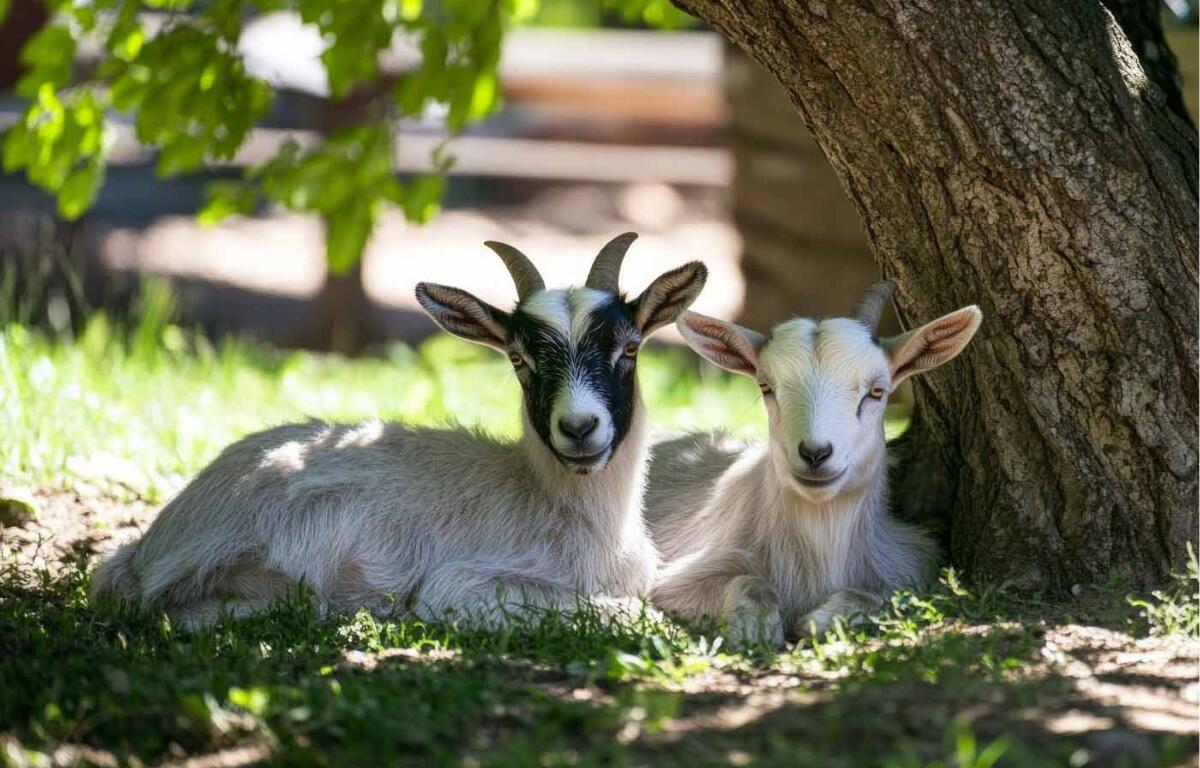WEYERS CAVE, VA (Virginia Farm Bureau) — When last week’s heat dome pushed temperatures into the triple digits, people weren’t the only ones seeking relief. Across Virginia, livestock producers worked to ensure their animals beat the heat.
“We only saw our cattle out early in the mornings and right before dark,” said Augusta County Farm Bureau president, Bradley Dunsmore, who raises cattle and goats. “The rest of the day they were under the trees.”
Although the western county is usually cooler, Augusta still saw “a couple hundred-degree days” during the heat wave’s peak. Dunsmore said he makes sure his animals have plenty of fresh, cool water and shade to weather summer’s often searing temperatures.
“We have fans on the goats in the barn just to keep air moving and keep everyone going,” he explained.
Feedings are done during cooler early mornings to keep livestock active before the day warms. And while they’re self-sufficient and resilient, Dunsmore keeps an eye on his herds. Hot weather can lead to heat stress and lower productivity.
“Your rate of gain is going to decline—they’re not going to gain much weight when they’re lying around all day trying to stay cool,” he said. “It takes energy to beat the heat, and the less stress they have on them, the better they do.”
He watches for unusual behaviors like herd animals standing off alone or panting excessively, both of which are early signs of overheating.
About 100 miles southeast, Prince Edward County farmer David Emert echoed Dunsmore’s playbook to help his animals cope with scorching summer temperatures. Shaded pastures and creeks give his cattle and sheep a place to cool off, while his hogs chill under canopies and sprinklers.
“Cattle and sheep have the most problems this time of year,” said Emert, Prince Edward County Farm Bureau president and member of the Virginia Farm Bureau Federation Livestock Advisory Committee.
In addition to facing heat stress, “the cows don’t milk as well since they don’t get out and graze as often, and the calves don’t grow as fast.”
But prolonged resting in shaded spots near creeks can turn too muddy, so he increases pasture rotations.
And like their animals, farmers “follow the same recipe” for keeping cool.
“Plenty of cold fluids and if you get overheated, find shade for a few minutes,” Dunsmore explained. “I do my physical work earlier in the mornings or late evenings when it’s cooler.”
They’re also bracing for the remaining summer months.
“With that heat wave in June, I’m sure July or August are gonna have their turn to speak at some point too,” Dunsmore quipped.



